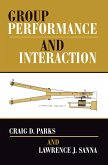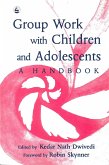A good number of recent communication research activities focus largely on individuals as units of analysis, thus downplaying communication relationships. Considering the fact that group exchange or reciprocal relationships are interactional, and when positive lead to high level of group productivity, this book, drawing from a wide range of communication theories, models and recent empirical studies, explains how social psychology and physical environment facilitate communication and enhance group effectiveness and efficiency. The book attempts to provide readers with the rationale for regular communication network analysis of human groups. The reader is led to come to terms with sociometric techniques for determining the affective structure of the groups, centrality of networks, nature of communication integration, network traversability; and to understand the relationship between communication network and innovation diffusion within a group and among different groups. Although it is primarily intended for communication scholars, the text is valuable for social workers, extension agents, cooperative officers, adult educators, development practitioners and farmers.
Bitte wählen Sie Ihr Anliegen aus.
Rechnungen
Retourenschein anfordern
Bestellstatus
Storno








